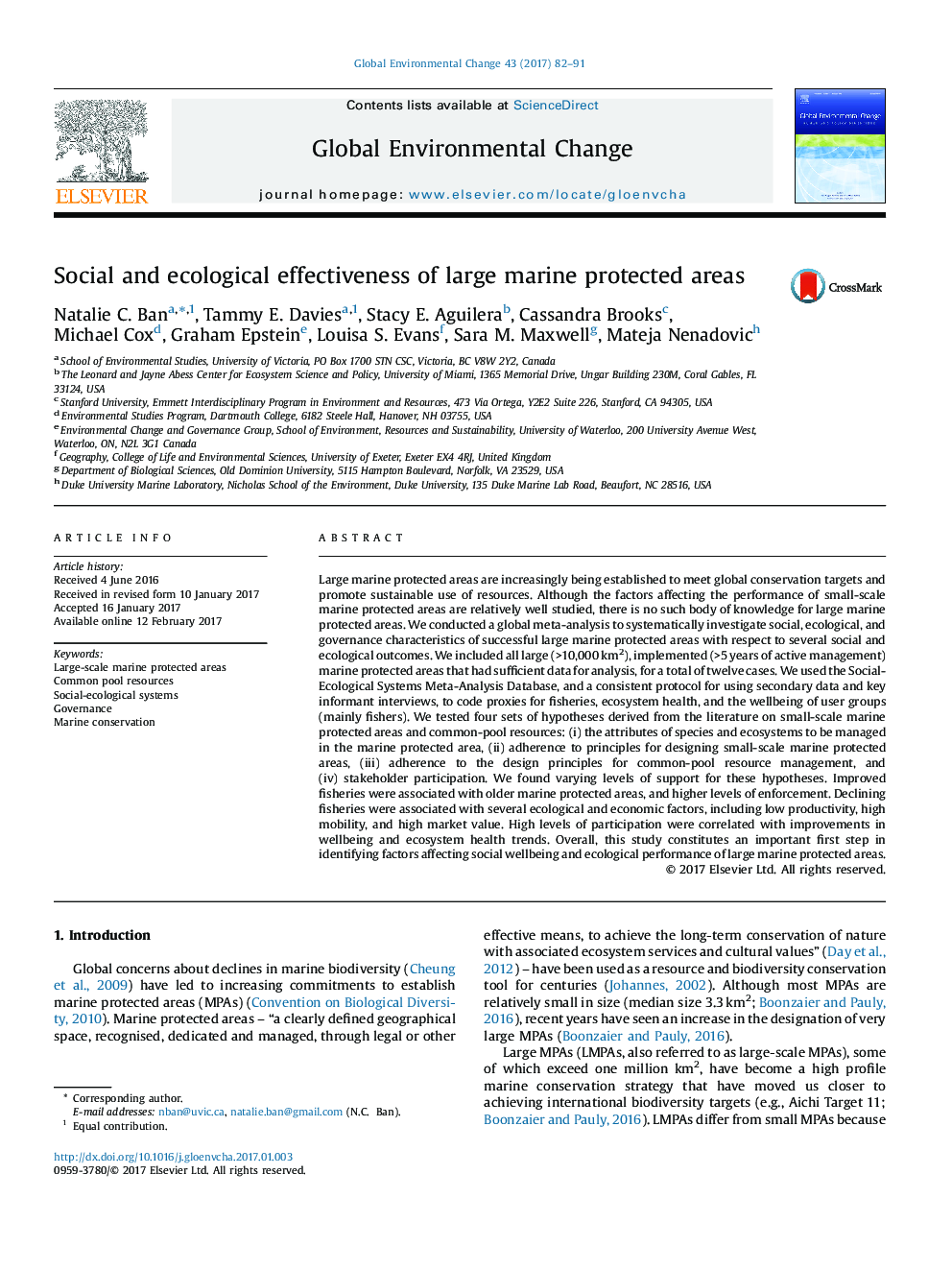| کد مقاله | کد نشریه | سال انتشار | مقاله انگلیسی | نسخه تمام متن |
|---|---|---|---|---|
| 5115959 | 1485115 | 2017 | 10 صفحه PDF | دانلود رایگان |
- The social and ecological effectiveness of LMPAs >10,000Â km2 are evaluated.
- We conducted a meta-analysis of social and ecological characteristics.
- Improved fisheries were associated with older areas and high enforcement.
- Declining fisheries had low productivity, high mobility, and high market value.
- High participation linked with improved wellbeing and ecosystem health trends.
Large marine protected areas are increasingly being established to meet global conservation targets and promote sustainable use of resources. Although the factors affecting the performance of small-scale marine protected areas are relatively well studied, there is no such body of knowledge for large marine protected areas. We conducted a global meta-analysis to systematically investigate social, ecological, and governance characteristics of successful large marine protected areas with respect to several social and ecological outcomes. We included all large (>10,000Â km2), implemented (>5Â years of active management) marine protected areas that had sufficient data for analysis, for a total of twelve cases. We used the Social-Ecological Systems Meta-Analysis Database, and a consistent protocol for using secondary data and key informant interviews, to code proxies for fisheries, ecosystem health, and the wellbeing of user groups (mainly fishers). We tested four sets of hypotheses derived from the literature on small-scale marine protected areas and common-pool resources: (i) the attributes of species and ecosystems to be managed in the marine protected area, (ii) adherence to principles for designing small-scale marine protected areas, (iii) adherence to the design principles for common-pool resource management, and (iv) stakeholder participation. We found varying levels of support for these hypotheses. Improved fisheries were associated with older marine protected areas, and higher levels of enforcement. Declining fisheries were associated with several ecological and economic factors, including low productivity, high mobility, and high market value. High levels of participation were correlated with improvements in wellbeing and ecosystem health trends. Overall, this study constitutes an important first step in identifying factors affecting social wellbeing and ecological performance of large marine protected areas.
Journal: Global Environmental Change - Volume 43, March 2017, Pages 82-91
